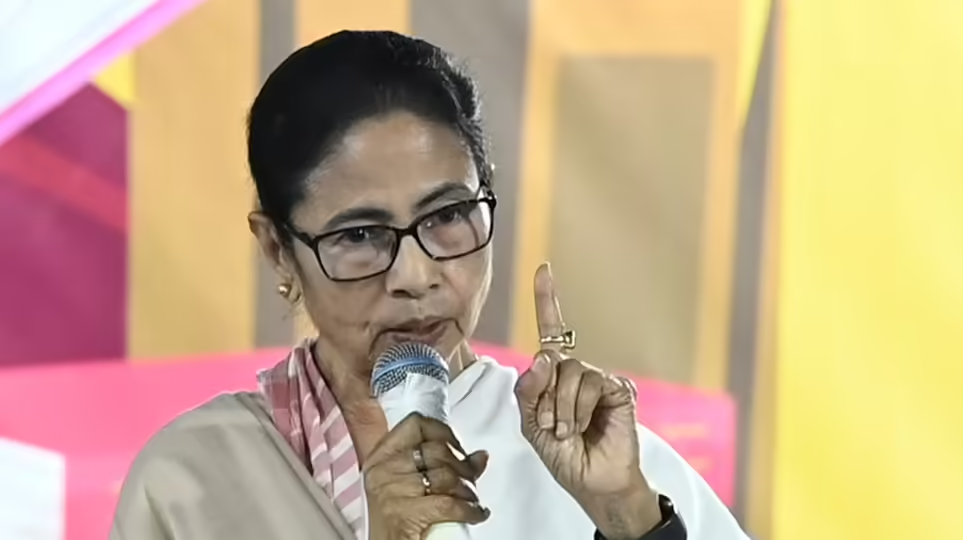Mamata Banerjee Advocates for Female Doctors' Safety Amidst Significant Pay Raises in West Bengal
Mon, 24 Feb 2025

In the wake of the tragic incident at Kolkata's RG Kar Medical College and Hospital, where a 31-year-old female postgraduate trainee doctor was brutally raped and murdered on August 9, 2024, West Bengal Chief Minister Mamata Banerjee has announced a series of measures aimed at bolstering the morale and safety of medical professionals in the state. This incident not only shocked the nation but also ignited widespread protests among the medical community, highlighting pressing concerns about workplace security and systemic issues within the state's healthcare infrastructure. Addressing a gathering at the 'Chikitsar Arek Naam Seva' program, organized by the state's Health and Family Welfare Department at the Dhono Dhanya Auditorium, Banerjee unveiled substantial salary increments for various tiers of medical staff. These adjustments are designed to recognize the relentless dedication of healthcare workers and to address long-standing disparities in their remuneration. Under the revised pay structure: Diploma-holding senior resident doctors will see their monthly earnings rise from ₹65,000 to ₹80,000. Postgraduate senior resident doctors will experience an increase from ₹70,000 to ₹85,000 per month. Post-doctorate senior doctors will now receive ₹1,00,000 monthly, up from the previous ₹75,000. Additionally, interns, house staff, and postgraduate trainees are set to benefit from a ₹10,000 hike in their stipends, providing them with enhanced financial support during their formative years in the medical profession. Beyond financial incentives, Chief Minister Banerjee emphasized the paramount importance of creating a secure and supportive environment for female medical practitioners. She called upon male doctors to actively participate in safeguarding their female colleagues, fostering a culture of mutual respect and vigilance. Banerjee stated, "I am entrusting my brothers to protect our sisters. In today's era, it's a positive development that men and women work, eat, and share the workplace together." The RG Kar incident not only brought to light severe security lapses but also unveiled deep-seated corruption within the medical education system. Investigations revealed a pervasive racket involving bribes for transfer postings and the illicit diversion of government-procured medicines to private entities. The Central Bureau of Investigation (CBI) uncovered that the victim had actively opposed these malpractices, which may have led to her being targeted. In response to these revelations, the state government has initiated a comprehensive overhaul of the healthcare system's administrative and security frameworks. A Special Investigation Team (SIT) has been constituted to delve into the financial irregularities at RG Kar Medical College, scrutinizing activities from January 2021 onwards. This four-member team is mandated to submit its findings within a month, aiming to restore transparency and accountability within the institution. To further fortify the safety of medical professionals, especially women, the government has embarked on infrastructural enhancements across state-run hospitals. This includes the installation of over 7,000 CCTV cameras, construction of nearly 900 new duty rooms, and the addition of 778 washrooms. An allocation exceeding ₹113 crore has been designated for these upgrades, with a significant portion of the projects nearing completion. The tragic events at RG Kar Medical College have also prompted introspection regarding the prevailing "threat culture" within medical institutions. Reports indicate that the victim had been vocal against unethical practices, including a bribery network related to doctor transfers and postings. This culture of intimidation has been a longstanding issue, with junior doctors often facing harassment from certain senior staff and administrative officials. The government's recent actions aim to dismantle these toxic hierarchies, ensuring a more equitable and safe working environment for all medical practitioners. In a gesture acknowledging the emotional and psychological toll on the medical community, Banerjee announced the allocation of ₹2 crore for cultural and sporting events within medical colleges. This initiative seeks to provide healthcare professionals with avenues for relaxation and camaraderie, fostering a sense of community and well-being beyond their demanding professional responsibilities. The Chief Minister also addressed the issue of private practice among government-employed doctors. Recognizing the need for supplementary income and broader professional exposure, she relaxed existing norms, permitting doctors to engage in private practice within a 30 km radius of their primary workplace, an expansion from the previous 20 km limit. However, she underscored the expectation that doctors fulfill their primary obligations, stating, "My only request to you is that you must attend to your duty at the government hospitals for eight hours." These multifaceted measures reflect the West Bengal government's commitment to addressing both the immediate and systemic challenges faced by the state's medical fraternity. By combining financial incentives, infrastructural improvements, and cultural initiatives, the administration aims to rebuild trust and morale among healthcare professionals, ensuring that such tragedies are not repeated and that the state's healthcare system emerges more resilient and compassionate.
